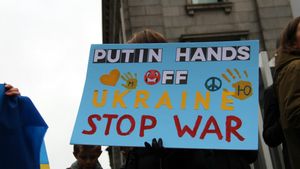Poland’s Prime Minister Donald Tusk has firmly declared the nation’s refusal to comply with the European Union’s Migration Pact, which is aimed at managing the irregular arrival of asylum seekers. Speaking alongside European Commission President Ursula von der Leyen, Tusk reiterated Poland’s stance during a press conference on February 4, making it clear: "Poland will not implement the Migration Pact...in a way to accommodate additional quotas of immigrants".
This legislation, which is legally binding for all EU member states, is expected to be enacted by 2026. Its main element is a mechanism of "mandatory solidarity," requiring governments to either relocate asylum seekers, make financial contributions, or provide operational support. The quota demands include relocating 30,000 asylum seekers per year and contributing roughly €600 million.
Poland has consistently opposed the Pact since negotiations began, with Tusk expressing concerns over being forced to accept migrants against its will. He pointed out the country's existing commitments to hosting Ukrainian refugees fleeing the war. "We have already taken on more than anyone could have imagined...we are ready to cooperate...but Poland will not take on any additional burdens," Tusk asserted.
Echoing his sentiments, von der Leyen acknowledged Poland's significant efforts, stating, "Poland has shown, and is showing, extraordinary solidarity...this is something which absolutely has to be taken account". The Commission's support for Poland’s position stems from the recognition of the large number of Ukrainian refugees the country has absorbed over the past three years.
While Tusk predicts legal challenges may arise, he is also aware of the potential for exemptions under the Pact for nations under significant migratory pressure, which may include Poland. He mentioned, "If somebody says Poland is expected to shoulder additional burdens...my response is Poland will not accept any additional burden. Full stop." The tensions reflect broader concerns over migration and national security, particularly as various actors exploit migratory flows for political leverage.
The Migration Pact has been long-discussed and aims to balance asylum responsibilities across the EU amid persistent concerns about irregular migration. The recent surge of asylum applications, reaching their highest level in seven years, has amplified calls for comprehensive reforms. The proposed legislation could fast-track deportations for asylum-seekers from countries with historically low approval rates, aligning with the EU's broader approach to security and border management.
Under this backdrop, Tusk has emphasized Poland’s security measures, noting the active role of security forces who risk their lives on the border to mitigate irregular migration. He called for recognition of these efforts from the EU, indicating Poland's migration management efficiency has improved since his government took office after defeating the right-wing Law and Justice party.
While Tusk affirms Poland’s integration within the EU on various fronts, he remains adamant about protecting the country’s interests. "I exclude any scenario where Poland is forced to act simply because the migration pact says so," he affirmed.
Without meaningful adjustments, the gap between EU legislation and Poland’s reality may widen, particularly as Tusk has expressed consistent resistance to mandates perceived as excessive or impractical. With the European Commission's legal framework paving the way for member states to respond to exceptional migration pressures, Poland stands firm, insisting on its autonomy and historical generosity toward refugee populations as mitigating factors against the Pact's stipulations.
The EU's future approach to addressing migration, particularly as it relates to Polish governance and the broader geopolitical environment, remains uncertain, reflecting the complex interplay between national security, humanitarian responsibilities, and the politics of migration.
Moving forward, among various pressing issues such as energy prices and rising euroscepticism within member states, Tusk's leadership is set to influence both Poland's engagement with the EU and the wider narrative around migration reform across the bloc.



